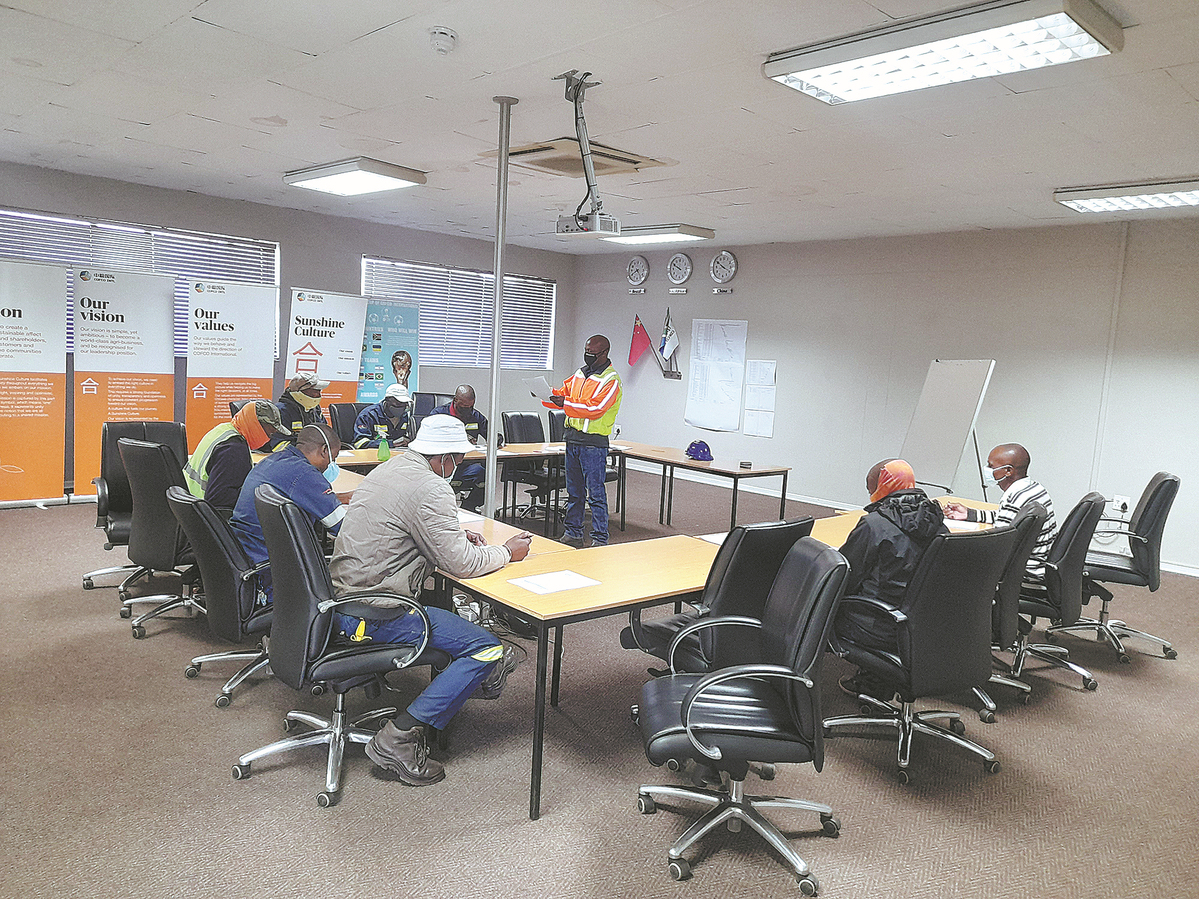Chinese company helping fend off world hunger


Upholding sustainability
COFCO International has worked hard to promote the construction of storage, logistics, and transshipment facilities in major food production areas.
Through the expansion of new storage facilities, the capacity of inland transshipment warehouses and supporting processing warehouses has been improved to a certain extent, and the capacity of food-sourcing, storage, and logistics in production areas has been enhanced.
By the end of last year, COFCO International's global grain, oil and sugar processing facilities had an annual processing capacity of about 27 million tons and a storage capacity of about 2.3 million tons, and it had more than 30 million tons of products in port terminals.
In stabilizing global supply chains and logistics, COFCO International holds sustainability as one of its core values, he said.
"Not only do we have a team dedicated to the development and execution of our sustainability programs, but our leadership ensures that sustainability is woven into both our strategy and our operations to ensure we remain competitive," he said. "Each year, we train farmers in agricultural skills in key countries to enhance their capacity to develop sustainable agriculture, and we implement energy and water conservation and emission reduction measures to reduce our environmental impact and capture opportunities for improved operational efficiency."
The company prioritizes the transition to green energy, with around 85 percent of its global energy needs currently being met through renewable sources.
It also supports the United Nations Global Compact and its 2030 Sustainable Development Goals, the most ambitious example being its efforts to halt agricultural commodity-driven deforestation in its soy supply chains, together with other global agribusinesses.
In November last year, COFCO joined 12 of the world's largest agricultural enterprises at the United Nations COP26 conference in the United Kingdom, committing to a shared roadmap for enhanced supply chain action consistent with efforts to keep global temperatures from increasing beyond the 1.5 C mark.
"We have already initiated a global climate change strategy that covers our entire footprint, and we are working together with industries to launch a collectively agreed roadmap aligned with global climate goals at COP27 in Egypt next month," Dong said.
The company's efforts to halt commodity-driven deforestation rely on its ability to trace its soy supply chain.
This journey started in 2017 and today involves a complex system, including remote sensing satellites to monitor major social and environmental risks.
The system now covers all of its soy-producing regions in Brazil, and the company has since committed to achieving a deforestation and conversion-free soy supply chain across the Amazon, the Cerrado and the Gran Chaco, which are South America's most environmentally sensitive regions.
COFCO International also operates a fleet of dry bulk carriers as part of commodity trading with maritime logistics and risk management around the world.
It has around 200 vessels afloat at any given time and it monitors their greenhouse gas emissions and uses AI and other technology to make fuel, energy and efficiency savings in line with the shipping industry's ambitions to halve greenhouse gas emissions by 2050.
COFCO is also a member of the Sea Cargo Charter, and together with 16 global energy, agriculture, mining and trading companies, has pledged measures to reduce carbon emissions from maritime operations.
"We remain steadfast in our commitment to feed the world responsibly and help transform the global food system," Dong said.
"Over the past few years, we have leveraged our flexibility and innovation to build resilience and overcome disruption during uncertain times. And in everything we do, we prioritize the safety of our people and the continuity of our supply chains while accelerating the transformation of our food and agricultural system."
























